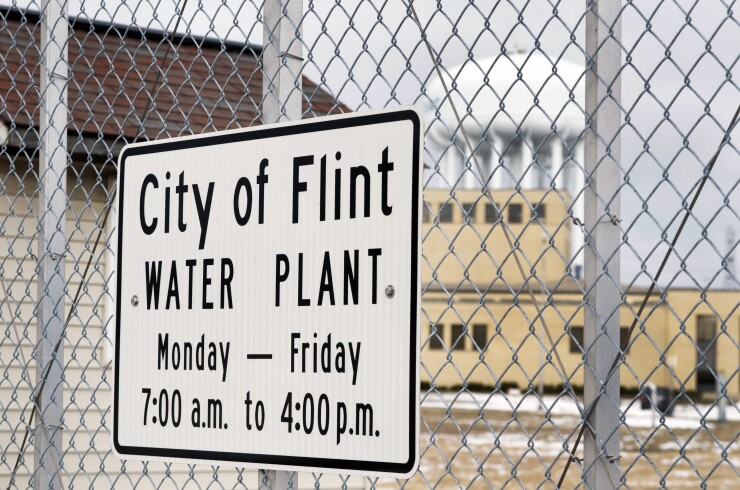The Biden administration Tuesday announced the strictest-ever
"Folks, what is a government for if it cannot protect the public health?" Biden asked a crowd Tuesday in Milwaukee, where he announced the rule.
The Lead and Copper Rule Improvements rule, the strictest in 30 years, replaces a rule put in place by former President Donald Trump. His competitor Vice President Kamala Harris has also called for replacing lead pipes, many of which are located in the Rust Belt, home to swing states that could decide the November election. Fifteen Republican attorneys general have criticized the requirements.
The

The announcement comes a decade after
Water systems, most owned by local governments,
The Environmental Protection Agency estimates there are 9.2 million lead pipes that would need to be replaced. The American Water Works Association, which represents utilities, puts the price tag at $90 billion, while the EPA estimates the cost at $20 billion to $30 billion.
The EPA Tuesday announced $2.6 billion of grants that will flow through state drinking water revolving funds. It's part of the $26 billion allocated in the Infrastructure Investment and Jobs Act that can be used for lead-related activity, said Mae Wu, the agency's deputy assistant administrator for water on Tuesday during a White House call. That includes $15 billion directly for lead and another $11.5 billion that can be used for lead projects.
"The final rule will protect millions of people across the country from exposure to lead in drinking water," Wu said.
EPA Administrator Michael Regan said the "science has been clear for decades — there is no safe level of lead in drinking water."
The 10-year deadline won't start for three years. A handful of cities, including Chicago, which has the most amount of lead pipes and faces an estimated replacement cost of $8.5 billion, will get additional time.
Some water systems are lobbying for





